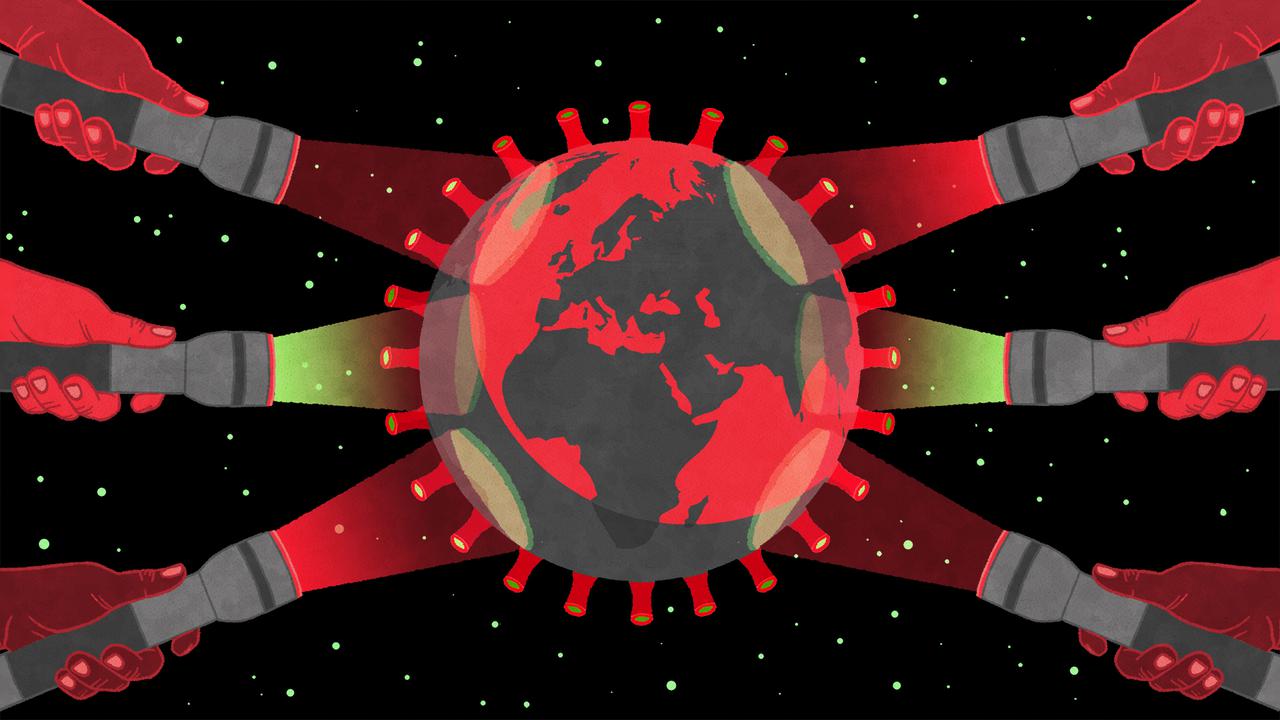
Coronavirus: why we are investigating
What are we investigating?
Corruption and profiteering in the pharmaceutical and medical industries; negligence, incompetence and bad practice by governments; failures in healthcare provision and drastic health inequalities – systemic issues in global healthcare are a matter of life and death. And they are all being brought into acute, painful focus by the coronavirus pandemic.
Despite affecting every one of us deeply, up to now there has been little investigative journalism looking at how the decisions and actions of the powerful play out on people’s bodies and in lives across the world. The Bureau launched a global health team earlier this year with plans to change that. Now, we will examine them through the lens of Covid-19.
We will go behind the headlines and beyond the constant coronavirus news flow to find the facts and tell the stories that both illuminate the pandemic and the systemic issues underpinning it. In collaboration with reporters around the world, we will gather evidence and create resources that will hold power to account and strengthen our communities - both during the crisis and after.
We have begun by investigating the opacity and fragility of the world’s drug supply chain - a long-standing problem which is now leaving hospitals across the world with dire shortages of life-saving medicines.
Why is this important to cover?
The coronavirus pandemic is the biggest global health emergency in recent memory. The way that communities, health authorities and governments respond, both now and later, will have profound consequences for us all. We need investigative journalism to counter misinformation and reveal facts and on-the-ground realities.
Good reporting, across borders, is also necessary to ensure that lessons are learnt. What we discover over the next weeks, months and years will be just as relevant to other crises, from antibiotic resistance to obesity, as it will to pandemics.
Over the long term, it is crucial that we investigate how robust our health systems are, the interests that influence this, and the dramatic inequalities that determine who will live and who will die. Quality journalism will help reveal what could be done to reduce suffering and save lives, how that change could happen and who could drive it.
What will the Bureau bring?
Usually the Bureau focuses on underreported issues, but we cannot ignore one of the biggest health stories of our time. Free from the pressure of reporting daily news, we will step back and look at the bigger picture, staying on a story for as long as it takes to build specialist knowledge, connect the dots and collect powerful evidence. We will investigate not just the pandemic, but what it tells us about global health in today’s world.
As the majority of the world’s media understandably focuses most of their coverage on the national picture in their home countries, the Bureau will create a network of reporters across the globe to collaborate on cross-border investigations, building on the success of our Bureau Local model in the UK. Our investigations will be published around the world in different formats and languages, from specialist journals to local papers.
Over time, our health team will also build a wider network of contacts and collaborators, from grassroots groups, doctors and academics to public health officials and international NGOs. And where we uncover vital stories that demand action, we will take our findings directly to those who can make a difference – from policymakers to affected communities. If you’re a health reporter interested in joining our network, contact our health editor Chrissie Giles at [email protected] or get in touch on Twitter: @christinagiles
What do we want to achieve?
We’re not covering coronavirus for clicks. We won’t spark panic; we won’t catastrophise. The Bureau wants to write stories that help us through this.
Our in-depth reporting will give people around the world accurate and trustworthy information that they can use to navigate the crisis, understand what change is needed, and see where profit is being put before people. It will show where change is needed and provide evidence for those seeking to drive it.
Through our network model we want to build capacity for robust investigative reporting on public health issues around the world. We want to bring different types of people and organisations together so that everyone’s work is strengthened and has greater impact.
Ultimately, by highlighting vulnerabilities, revealing vested interests and shining a light on bad practice, we want to strengthen health systems in order to help improve and save lives around the world.




